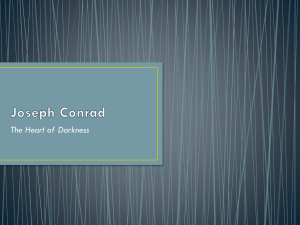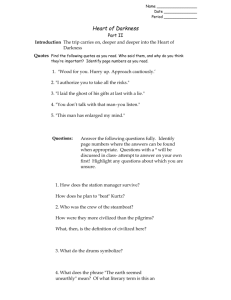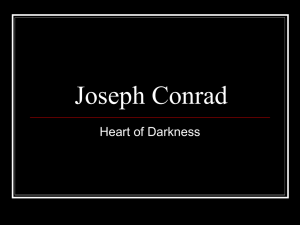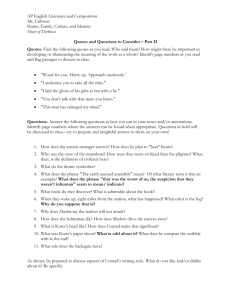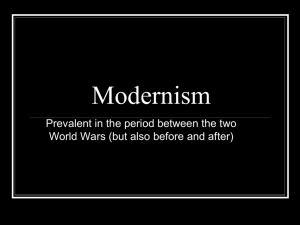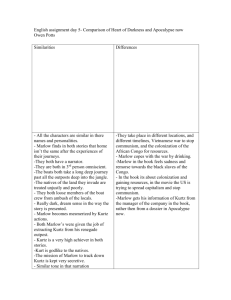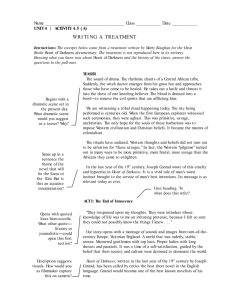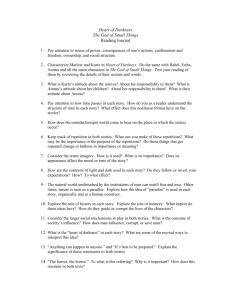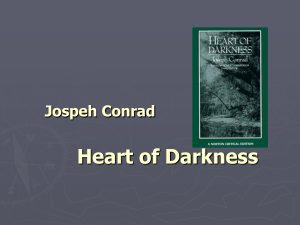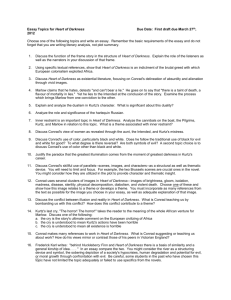Heart of Darkness Essay Prompts & Analysis
advertisement
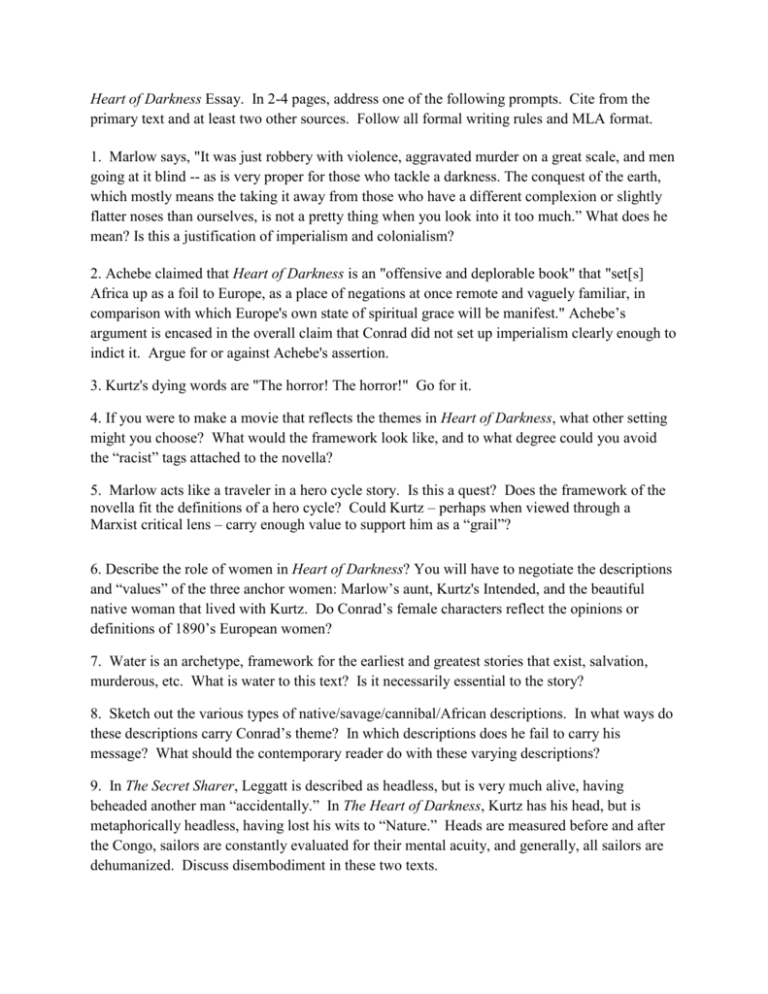
Heart of Darkness Essay. In 2-4 pages, address one of the following prompts. Cite from the primary text and at least two other sources. Follow all formal writing rules and MLA format. 1. Marlow says, "It was just robbery with violence, aggravated murder on a great scale, and men going at it blind -- as is very proper for those who tackle a darkness. The conquest of the earth, which mostly means the taking it away from those who have a different complexion or slightly flatter noses than ourselves, is not a pretty thing when you look into it too much.” What does he mean? Is this a justification of imperialism and colonialism? 2. Achebe claimed that Heart of Darkness is an "offensive and deplorable book" that "set[s] Africa up as a foil to Europe, as a place of negations at once remote and vaguely familiar, in comparison with which Europe's own state of spiritual grace will be manifest." Achebe’s argument is encased in the overall claim that Conrad did not set up imperialism clearly enough to indict it. Argue for or against Achebe's assertion. 3. Kurtz's dying words are "The horror! The horror!" Go for it. 4. If you were to make a movie that reflects the themes in Heart of Darkness, what other setting might you choose? What would the framework look like, and to what degree could you avoid the “racist” tags attached to the novella? 5. Marlow acts like a traveler in a hero cycle story. Is this a quest? Does the framework of the novella fit the definitions of a hero cycle? Could Kurtz – perhaps when viewed through a Marxist critical lens – carry enough value to support him as a “grail”? 6. Describe the role of women in Heart of Darkness? You will have to negotiate the descriptions and “values” of the three anchor women: Marlow’s aunt, Kurtz's Intended, and the beautiful native woman that lived with Kurtz. Do Conrad’s female characters reflect the opinions or definitions of 1890’s European women? 7. Water is an archetype, framework for the earliest and greatest stories that exist, salvation, murderous, etc. What is water to this text? Is it necessarily essential to the story? 8. Sketch out the various types of native/savage/cannibal/African descriptions. In what ways do these descriptions carry Conrad’s theme? In which descriptions does he fail to carry his message? What should the contemporary reader do with these varying descriptions? 9. In The Secret Sharer, Leggatt is described as headless, but is very much alive, having beheaded another man “accidentally.” In The Heart of Darkness, Kurtz has his head, but is metaphorically headless, having lost his wits to “Nature.” Heads are measured before and after the Congo, sailors are constantly evaluated for their mental acuity, and generally, all sailors are dehumanized. Discuss disembodiment in these two texts.
